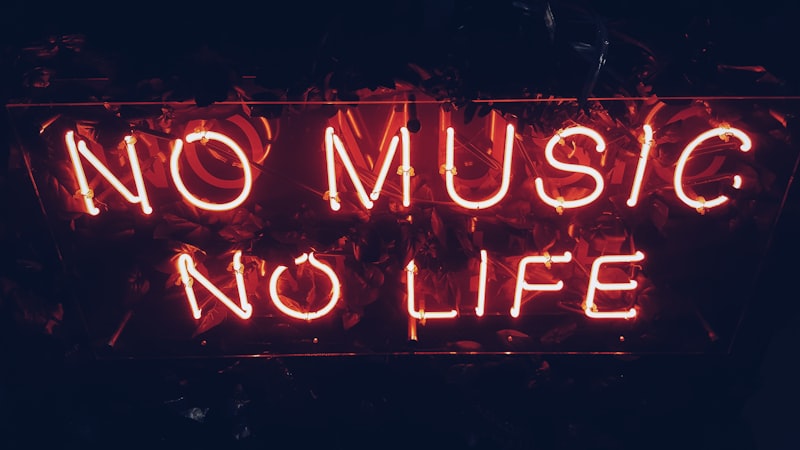The Power of Music Therapy: Healing Through Sound


Have you ever experienced the incredible impact of music on your mood? Whether it’s an uplifting melody that lifts your spirits or a soothing tune that calms your mind, music has an extraordinary ability to touch our souls. But did you know that music can also be a powerful tool for healing? Welcome to the world of music therapy, where the harmonious blend of sounds paves the way for emotional and physical well-being.
Music therapy is a holistic approach that utilizes the therapeutic properties of music to address various health conditions. It goes beyond mere entertainment, tapping into the depths of human emotions and harnessing the power of sound vibrations. By incorporating music into tailored treatment plans, trained professionals can help individuals cope with pain, reduce stress, and promote overall relaxation.
So how does music therapy work its magic? The answer lies in the way our brains respond to music. When we listen to music, our brain releases endorphins, the feel-good chemicals that elevate our mood and alleviate pain. This physiological response forms the foundation of music therapy, as therapists strategically select music that resonates with the individual’s needs and goals.

Imagine a cancer patient undergoing a grueling chemotherapy session. Surrounded by the sterile environment of a hospital room, the patient finds solace in the gentle melodies of a carefully curated playlist. As the music flows through their ears, it creates a sanctuary of tranquility amidst the chaos. The rhythm of the music synchronizes with their heartbeat, infusing them with a sense of hope and strength.
Beyond emotional support, music therapy also holds immense value in rehabilitation settings. Stroke survivors, for instance, may struggle with speech impairments. But when words fail, music becomes their voice. Through rhythmic patterns and melodic intonations, they begin to regain their communication skills, reawakening the pathways in their brains that were once dormant.
In essence, music therapy is a powerful testament to the profound connection between sound and the human experience. It transcends language barriers and reaches the deepest corners of our souls. Whether it’s the gentle strumming of a guitar or the melodic harmony of a symphony orchestra, music has the innate ability to heal, inspire, and transform lives.
So, the next time you find yourself captivated by a melody, remember the immense power it holds. From alleviating pain to enhancing emotional well-being, music therapy stands as a testament to the boundless healing potential of sound. Let the rhythm guide you on a journey of self-discovery and healing, for within the harmonies lies the transformative magic of music.
Harmony in Healing: How Music Therapy is Transforming Lives
Are you ready to embark on a transformative journey through the power of music? Prepare to be amazed as we delve into the captivating world of music therapy, an incredible healing modality that is revolutionizing lives. In this article, we will explore the concept of harmony in healing and how music therapy has emerged as a beacon of hope for individuals seeking solace and restoration.
Imagine a symphony of sounds gently enveloping your senses, carrying you away on a melodic voyage. That’s precisely what music therapy does—it harnesses the innate power of music to address various physical, emotional, and mental health challenges. Through carefully curated musical experiences, therapists create a safe space where individuals can find solace, express their emotions, and embark on a path towards healing.
The impact of music therapy is nothing short of extraordinary. For those struggling with anxiety or depression, music becomes a lifeline, offering comfort and respite from the storm within. It has the remarkable ability to evoke emotions, enabling individuals to confront and process their inner struggles. Through gentle melodies and harmonious rhythms, music therapy helps individuals find their voice and reconnect with themselves in profound ways.
But music therapy doesn’t stop at emotional healing; it extends its benevolent touch to physical well-being as well. Research has shown that music can alleviate pain, reduce blood pressure, and even enhance motor skills. By incorporating rhythmic patterns and specific techniques, therapists guide patients towards improved physical coordination and heightened sensory awareness. It’s like a dance between body and melody, harmoniously working together towards holistic wellness.

Metaphorically speaking, music therapy paints a vibrant mural of colors, each hue representing a different aspect of healing. Just as an artist blends shades seamlessly to create a masterpiece, music therapists skillfully weave together melodies, harmonies, and lyrics to compose a personalized tapestry of therapeutic support. Like a soothing balm for the soul, music therapy restores balance, whispers encouragement, and ignites the flame of hope within.
Music therapy is a powerful catalyst for transformation, offering solace, healing, and restoration to those in need. Through its harmonious embrace, it touches hearts, mends spirits, and transcends boundaries. So, let us embrace the symphony of healing and allow music to guide us on a wondrous journey of self-discovery and renewal.
Sound Waves of Recovery: Unveiling the Therapeutic Potential of Music

Have you ever wondered how music has the power to touch our souls, evoke emotions, and transport us to another realm? It’s as if the sound waves themselves carry healing properties that can mend our hearts and soothe our minds. In recent years, researchers and therapists have been uncovering the remarkable therapeutic potential of music, harnessing its harmonious melodies to promote healing, reduce stress, and enhance overall well-being. Let’s dive into this captivating world where sound waves become instruments of recovery.
Music therapy, a field that combines the art of music with the science of psychology, has gained recognition for its ability to address various physical, emotional, and cognitive challenges. Whether it’s through listening to music, playing an instrument, or engaging in musical activities, individuals can experience profound transformative effects. For example, studies have shown that music can significantly reduce anxiety and depression, providing solace to those struggling with mental health issues.
But what is it about music that makes it such a potent tool for healing? One key factor lies in its ability to stimulate multiple areas of the brain simultaneously. When we listen to music, different neural networks light up, activating regions responsible for memory, emotion, and reward. This intricate dance within our brains releases a cascade of feel-good chemicals, such as dopamine, fostering a sense of pleasure, relaxation, and connection.
Moreover, music has a unique way of bypassing language barriers and communicating directly with our emotions. It can paint vivid images in our minds, trigger long-forgotten memories, and ignite powerful sensations. Imagine a gentle melody flowing like a river, washing away stress and tension, or a vibrant rhythm pulsating through your body, invigorating every cell. These sonic vibrations have the power to create a sanctuary within ourselves, offering respite from the chaos of everyday life.
The therapeutic potential of music extends beyond emotional well-being. It has been found to enhance cognitive function, improve motor skills, and facilitate rehabilitation in individuals with neurological conditions. For instance, stroke survivors may regain speech through singing, as music activates alternative pathways in the brain. Children with autism spectrum disorder can develop social skills and communication abilities through interactive music-based interventions.
From Melodies to Miracles: The Surprising Benefits of Music Therapy
Did you know that music has the power to heal and transform lives? It’s true! In the realm of healthcare, a fascinating field known as music therapy has emerged, harnessing the captivating qualities of melodies to bring about remarkable miracles. Let’s delve into the awe-inspiring world of music therapy and explore its surprising benefits.
Imagine a young child struggling with speech development. Through the harmonious sounds of carefully selected tunes, music therapists work their magic, aiding in the child’s communication breakthroughs. With the rhythm and melody as catalysts, words start flowing effortlessly, enabling these children to express themselves in ways they couldn’t before. It’s as if music creates a gateway to their hidden verbal abilities.
But the wonders of music therapy don’t end there. Have you ever experienced the soothing effect of a gentle lullaby? Well, music therapists employ similar techniques to create a calming atmosphere for individuals battling anxiety and stress. By crafting melodic compositions tailored to each person’s needs, they can reduce tension, promote relaxation, and restore inner peace. It’s like a musical sanctuary that nurtures the mind and soul.
Moreover, music therapy has shown exceptional results in aiding physical rehabilitation. Whether it’s relearning movements after a stroke or regaining motor skills post-surgery, rhythmic patterns and coordinated exercises set to enchanting melodies can enhance the recovery process. It’s akin to a symphony of harmony between the body and sound, helping individuals regain strength, coordination, and independence.

In the realm of mental health, music therapy shines as a beacon of hope. For those grappling with depression or emotional trauma, music becomes a powerful outlet for expression. Through lyrics, melodies, and improvisation, emotions find a voice, offering solace and catharsis. It’s like painting a masterpiece with sounds, allowing individuals to release their inner turmoil and embark on a journey toward healing.
Unlocking Emotions, Restoring Hope: Exploring the Healing Power of Music
Picture this: you’re feeling down, weighed down by the burdens of life. But then, a song comes on and suddenly everything changes. Your spirits lift, your heart swells, and you’re transported to a place where worries fade away. That’s the magic of music—the ability to unlock emotions and restore hope.
Music has a profound impact on our lives, beyond just being a form of entertainment. It has the power to tap into our deepest emotions, evoking feelings that we may struggle to express otherwise. Whether it’s the joyous rhythm of an upbeat tune or the melancholic melody of a soulful ballad, music connects with us on a visceral level.
But how does music have this transformative effect? The answer lies in its unique ability to synchronize with our brain and body. When we listen to music, our brains release a cascade of neurochemicals such as dopamine, oxytocin, and serotonin, which are responsible for regulating our mood and emotions. It’s like a natural high, providing a sense of euphoria and relief from stress and anxiety.
Moreover, music acts as a universal language that transcends cultural and linguistic barriers. Regardless of our backgrounds or experiences, we can all relate to the power of a particular song. It has the remarkable ability to unite people, fostering a sense of belonging and connection. Think about it—how often have you attended a concert or a music festival and felt a profound sense of unity with the crowd around you?
In addition to its emotional impact, music has been recognized for its therapeutic benefits. Music therapy is a field that harnesses the healing power of music to improve physical, emotional, and mental well-being. It has been successfully employed in various healthcare settings to aid in pain management, reduce stress levels, and even enhance cognitive function.
Perhaps what makes music truly special is its ability to evoke memories and transport us through time. Have you ever heard a song that instantly takes you back to a specific moment in your life, triggering a flood of vivid memories? That’s the power of music—it can be a time machine, capable of rekindling long-forgotten emotions and experiences.
So, the next time you find yourself in need of an emotional boost or a glimmer of hope, turn to music. Let it wash over you, unlocking the depths of your soul and restoring your faith in the beauty of life. Allow its melodies to heal, uplift, and remind you that no matter how tough life gets, there’s always a song waiting to guide you back to joy and serenity.




